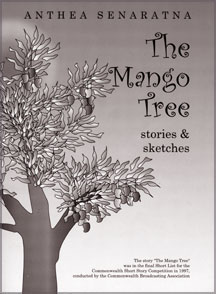|

Ghost writers
by Padma Edirisinghe
It would be an exaggeration to say that ghost writers are a breed as
old as ghosts. Ghosts have existed in airy and weird forms or in the
imagination of homo sapiens ever since the beginning of human history
while ghost writers own a genesis trailing the art of writing.
 My straying mind riveted around ghost writers recently in a certain
social gathering when and where, conversation was meandering from one
topic to another. On such occasions following the policy of Dehigama
Nilame, the Sinhala representative in the Legislative Assembly during
Governor Robinson's period, my policy is just to keep my trap shut for
it is just chat-ups for the mere sake of chat - ups. My straying mind riveted around ghost writers recently in a certain
social gathering when and where, conversation was meandering from one
topic to another. On such occasions following the policy of Dehigama
Nilame, the Sinhala representative in the Legislative Assembly during
Governor Robinson's period, my policy is just to keep my trap shut for
it is just chat-ups for the mere sake of chat - ups.
But this time I had to deviate.
"Did you read the review of the Speaker's recent book in Writer's
Den?"
"Yes. It was a good piece."
"But do you think that the Speaker really wrote that, immersed in all
that constitutional work or mess?"
"I too have my doubts..."
"You know there is a species known as ghost writers. May be someone
else wrote it for him," pronounced some body. A consensus seems to have
been reached on the issue, a very unfair consensus.
So, I decided to open the trap for two reasons. One was that I was
involved in the editing of this book, "Mystique of Sigiriya" to a
certain extent. The other reason was that I was personally aware of
every step of the emerging of the Speaker's recent work. His first
acquaintance with Sigiri gee had been when he had to study six gee along
with their meanings.
They had been prescribed for a law exam syllabus. His interest
aroused he began devouring "Sigiri graffiti" that giant work of Dr. S.
Paranavithana that encases some 685 plus poems inscribed on the Mirror
Wall of Sigiri between the 8th and 11th centuries by visitors.
Their labour in inscribing their lines of appreciation on hard
granite is only equalled by the professor's perseverance in tracing them
in the jungle wilderness that had crept on the rock fortress of King
Kasyapa and the Speaker's ability of memorizing them and quoting them in
apt places.
Actually Mr. Lokubandara was so fascinated with these verses that
generated the book, "Sigiri gee Siri" that opens the curtain on the
aesthetic potential of the author. Next he translated the work into
English. The labour had gone on for many years.
I am not sure whether I convinced my small audience by relating these
facts as tersely as possible but I had done my duty and see to it that
he never let ghost writers lurk around him in broad daylight or
midnight.
Jealousy is a rampant malaise in society and affects the higher - ups
more than plebians of my calibre.
I may spill out pages and pages to get out my writer's itch but
nobody would bother to degrade me by saying that I do not know my
English (there was one such) nor my content and that ghosts are merrily
at work, behind all that labour.
For example these ghosts activated themselves when Sir Solomon
Bandaranaike Maha Mudaliyar penned "Remembered yesterdays" in his
library at Horagolla Walavva. The English was silky as Chinese silk and
the humour par excellence.
No. They said. That book was not written by him. A Wasala Mudali, he
was burdened by much work aligned to statecraft, a more polite and
alternate way of putting it as "holding the flambeaux to the
governordoru and the Suddas."
He never had the talent for writing, the critics opined more cruelly.
One Souza, a Burgher wrote it for him, they said. After all English is
Souza's mother tongue. By what intricate logic, English is considered
the mother tongue of these descendants of the Dutch and the Portuguese
is indeed a conundrum.
And now literary masterpieces are produced in hundreds in English and
other languages by writers whose mothers spoke another language. In our
island Tibet S. Mahinda thera was perhaps the first to set the trend. He
composed brilliant poems in Sinhala while back home on the roof of the
world his dear mother jabbered in Tibetan as cold winds blew to and fro,
freezing her.
Genius on our land is usually associated with the middle group. The
poor are too starved of facilities to foster inborn talents which
undergo a cruel death while the very affluent just bask in life's
comforts that they never take the trouble to foster their talents.
Of course a good many of this class have shone themselves in various
fields, helped by the very silver spoon they were born with and the
consequent contacts. So Sir Solomon too would have been born not only
with the silver spoon but with a gift for writing.
His famous son, who convulsed the island with a great social
revolution was the author of "Maha hene reeri Yaka". No body ghost -
wrote it for him. It wove itself around a demon in their Ambepussa
estate. The Kandy Colombo road that zoomed the family fortunes of
Horagolla Walavva thus inter-wove itself with this family in various
ways.
Nobody ghost wrote "Buddhist essays" nor "Golden threads" of
President J. R. Jayawardena, who had a writing mania. But to cast a dark
shadow on these historical icons many a tongue would wag. Even the
novels written by President Premadasa have not escaped this taunt.
Writing seems to have been a hobby desired by many at the top. That the
descendants of our last king had all taken to journalism as a profession
cannot be merely a coincidence.
The moment Sir John Kotelawala lifted the ban on these royal
descendants from entering the island again (a ban imposed by the British
Govt. to guarantee a non-resurrection of the Nayakkar monarchy), what
did one of them do? He came back, sat in the House by the Beira and
wrote and wrote till he was drowned in the Indian ocean. Another
descendent lived in the vicinity of Chennai (Madras), worked on the
paper" Madras Mail "and died in a railway compartment of a heart attack
while returning home perhaps after a strenuous bout of work. I got this
info at Chennai itself.
Back to the island and its ghost writers. A strange fact is a good
number of our authors and poets have been the crowned heads of state.
Did they have the time for it in the political turbulence this island
had always been subject to? And did they do so to counterbalance the
pressures of statecraft? Maybe then too, knots gathered here and there
and speculated as to who ghost - wrote the great work.
Surely His Majesty is too busy to indulge in such a leisurely
activity as putting out a book. What they forget is that you can stretch
out or create the time if you wish.
When those holding responsible posts write books that ghosts are at
work has been a thought process developed from ancient times.
Curiously these ghosts had activated or non-activated themselves in
the production of our first two extant works in Sinhala i.e. Siya Bas
Lakara - Sena I (826-846 AD) or Sena III authored it according to
mention in the book. (nirindu kale Salamevan) Dham Piya Atuwa Geta
Padaya - Kasyapa V (908-918 AD) authored it."
Salamevan Kasup Maha raju kale me sanne" Kavsilumina, acclaimed as
the most brilliant Maha Kavya put out in Sinhala has been composed by
Parakramabahu II (Methkith pathala kalikal - savani nirindu kale me).
Were ghosts busy then too?
P.S. - I hope no one would think that this article too was ghost -
written. Ghosts have to just seethe around me as I go on and on, in not
one but two languages. (Source of these ancient Sinhala works is a
highly academic work titled "Parani Sinhala Vivaha samkrtya" by
Premadasa Sri Alawattege, a book published by Godage International).
Beggars can be choosers - sometimes
 "Completely convincing... a joy to read" (Prof. Yasmine Gooneratne),
"Witty and eloquent (Sita Kulatunga), "Sweet and simple" (Dr. Tissa
Abeysekara. These are just some of the reactions to Anthea Senaratna's
latest collection of short stories. So, what makes them tick? "Completely convincing... a joy to read" (Prof. Yasmine Gooneratne),
"Witty and eloquent (Sita Kulatunga), "Sweet and simple" (Dr. Tissa
Abeysekara. These are just some of the reactions to Anthea Senaratna's
latest collection of short stories. So, what makes them tick?
Reviewed by Aditha Dissanayake
[email protected]
Think of all the short stories you have ever read till now. Hmmm...
short stories written by Sri Lankan English writers. So many brimming
with nostalgia, yearning for the 'uncomplicated' past; so many about
personal encounters important to the writer but to no one else; so many
focusing on racial differences; so many highlighting the tsunami...
How many do you remember in detail? How many do you remember at all?
Anthea Senaratna's stories are different. They are different because
as Dr. Tissa Abeysekara says on the back cover they are like Maupasant's
tales - "lean and taut like a wire". They provide the reader with a
total experience in a form which is brief and concise. Anthea
demonstrates she has developed the art of writing a good short story to
bring back to quote Dr. Abeysekara "the magic voice of the oral
storyteller".
Take "The Get-together" from her new collection "The Mango Tree".
Most of us can easily identify with this situation "Ever since they left
school, the four of them vowed to meet as often as possible.
At the beginning they met every year, but as time went on other
responsibilities crept into their lives and they lost touch with one
another. And now, over a decade later, here they were at the Golden
Dragon, meeting together for lunch." Especially if you are a writer you
are bound to feel close affinities with Ruwani when her friends begin to
pick on her.
"Andrea looked at Ruwani. "You are so quiet. So- what have you been
up to" "Oh-all kinds of things" "What kind of things? You must do
something with yourself no...Charlene's face creased in abject sympathy.
"I write" the words rushed out. "Write? What do you write about?" She
takes a deep breath "Oh-articles, stories - some poetry" "Poetry for
what?"... the clatter of cutlery broke through the silence that
followed. "You must take yourself in hand Ru"
The story ends proving that Ru's decision to go out there and do what
she thinks is right is exactly the right thing to do. This is my
favourite story in the collection not only because it strikes codes very
close to my own heart, but because Anthea communicates a sense of
poetry, romance, a sense of the sublime through an extraordinarily
ordinary incident - four women having lunch at a Chinese restaurant and
ogling a "handsome hulk" who saunters past the window.
Here is flash fiction at its best; stories you can read on your feet,
oblivious to everything around you turning the pages breathlessly,
devouring every moment, yet waiting eagerly for the end. And savour and
devour are surely fitting words, for, there is a recurrent motif in the
collection, of food - cooked, shared, stolen.
From the two pieces of chicken in the opening story to rotti in
Aftermath, the ice cream with vanilla and mint in Moments in Time, the
chilli in the chicken curry in Better Half etc.
A second common thread is that of the challenges that come with
ageing. Characters in several of the stories are faced with the
realisation that they are no longer young and need to confront where
they are in their lives. In the Mirror Reflections the protagonist sighs
realizing that twenty years ago a different reflection had looked back
at her from the same mirror - a large oval one which had belonged to her
mother.
But what is surprising about these stories is that they are not
packed with action, intrigue, heart-breaking sorrow. On the contrary
they are about "Two pieces of chicken' a pair of shoes a swing a tuition
class and other equally seemingly mundane topics. Perhaps it is because
the stories are propelled by beggars and housemaids that they seem so
refreshing.
Or perhaps its the humour; look at Francis or Prancis with his
complaints" How can I be cleaning the house and the garden every single
day - too much of work - no Aiyo Missi the salary is not enough, they
will pay only two thousand five hundred - that's very little no".
Francis has proven my suspicion - beggars can be choosers is true.
There are no run-of-the-mill stories here about a Sinhala boy falling in
love with a Tamil girl, no mother crying over a son lost in the tsunami,
no protagonist recording every detail of a trip down South with her
husband.
And no banging the reader on the head with messages. Thank you Anthea. |
